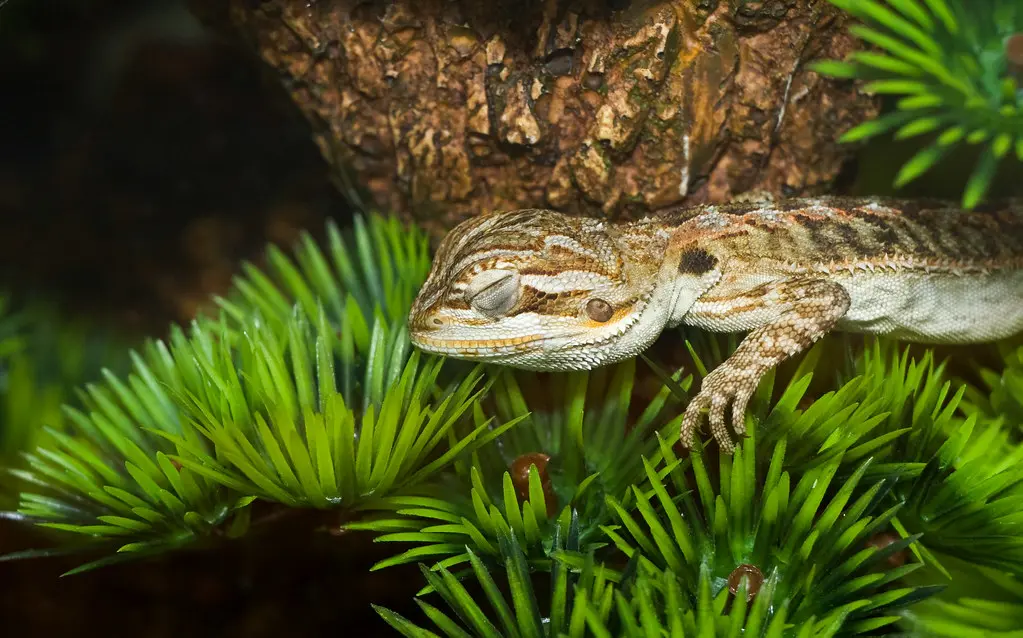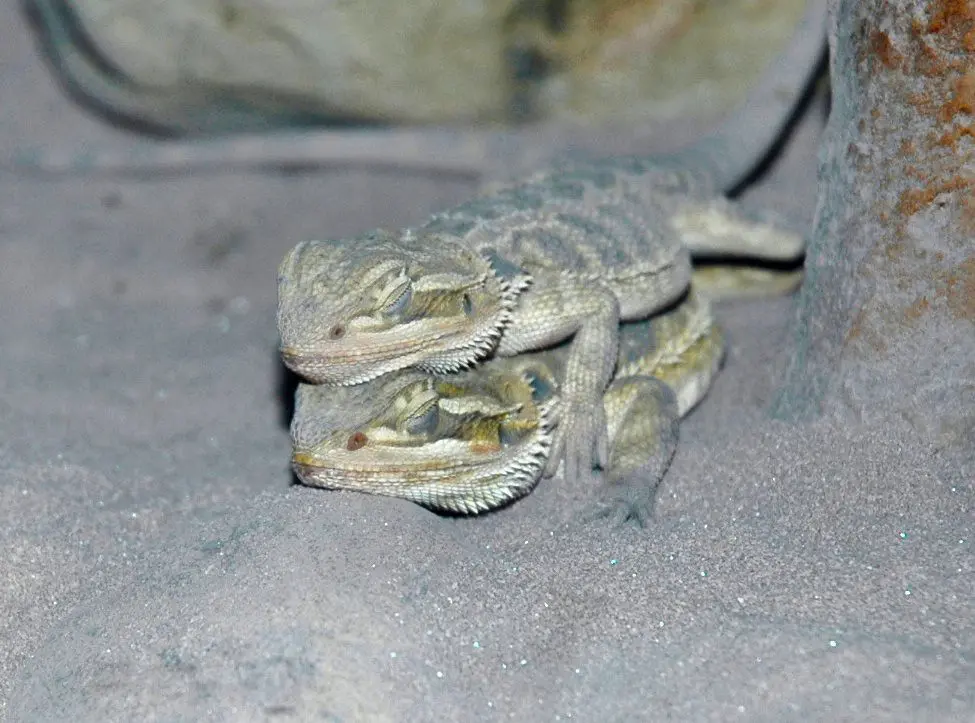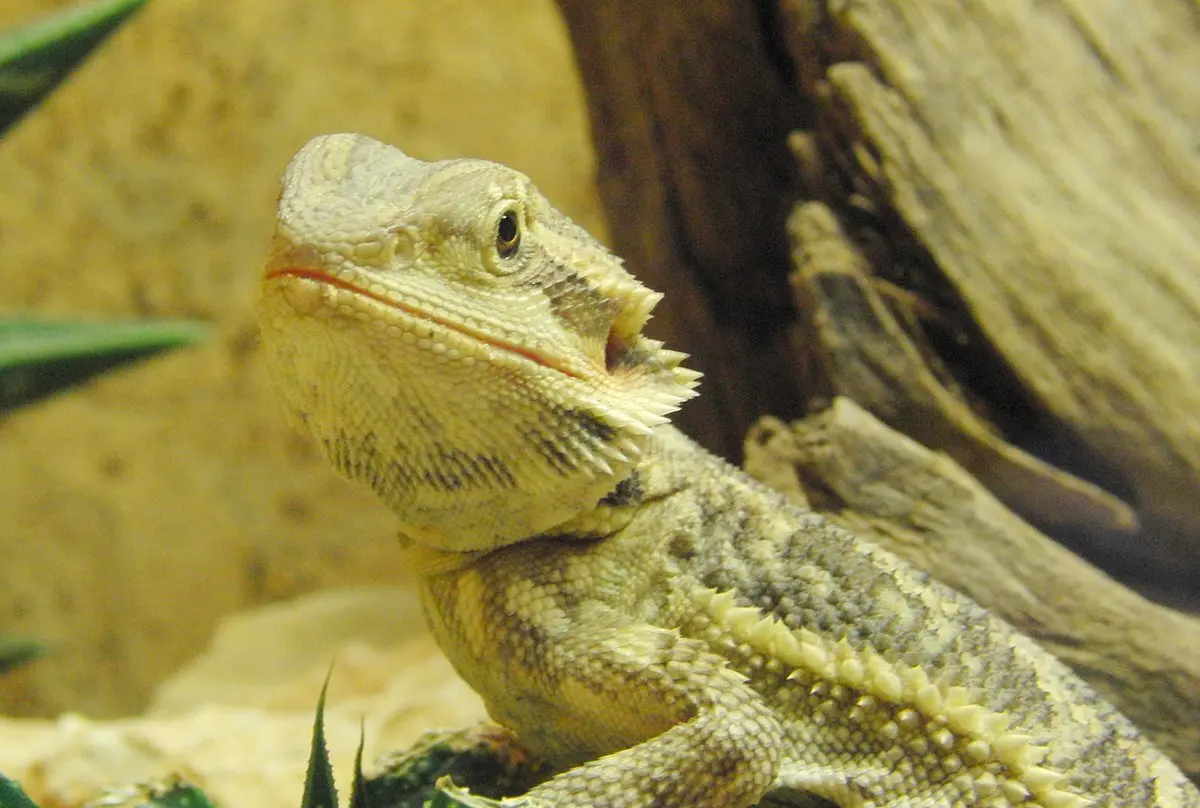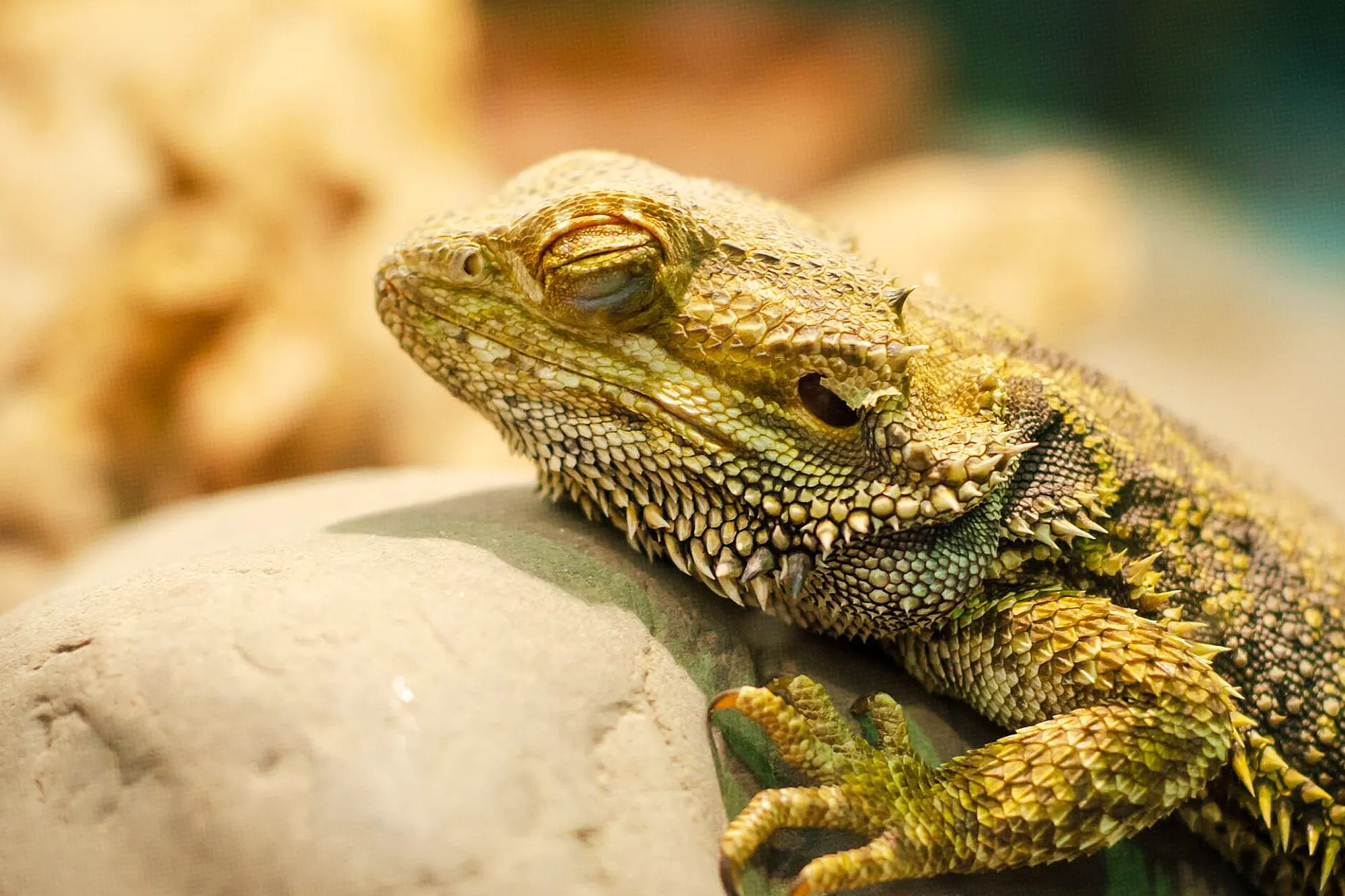Brumation is a natural process that bearded dragons go through during the winter months or cooler temperatures as a way to conserve energy when food and water sources are more scarce.
It’s similar to hibernation in other animals like bears. Understanding brumation and how to properly support your bearded dragon through this process is important for their health and wellbeing.
In this guide, we’ll cover everything you need to know about brumation in bearded dragons including what it is, signs and timeline, care tips, health risks, and how to tell if something is wrong.
What is Brumation in Bearded Dragons?

Brumation is a state of dormancy and reduced activity that bearded dragons exhibit in response to lower temperatures, shorter daylight hours, and scarcity of food that occurs naturally during the winter. It allows them to conserve energy and essentially “wait out” the cold winter months when resources are limited.
During brumation, bearded dragons will sleep much more deeply and for longer periods, may stop eating or eat very little, become less active, and have a lowered metabolism and body temperature. They retreat to a safe place in their habitat and remain hidden and asleep most of the time.
Brumation is not the same as hibernation. Reptiles can awake and become active during brumation if temperatures rise, whereas true hibernators remain dormant throughout. Bearded dragon brumation is more closely related to mammal hibernation than other reptile brumation states.
Signs Your Bearded Dragon is Entering Brumation
- Eating less frequently or showing disinterest in food
- Staying hidden and less active during the day
- Cooler body temperature
- Longer sleeps, less alert when awake
- Darkening color, looking pale or dull
- Weight loss
These are all normal behaviors for a bearded dragon entering brumation. Appetite and activity begin to decrease, they sleep more deeply and for longer periods, and can lose some weight as they draw on fat reserves.
You may also notice some unusual behavior like digging or scratching at the enclosure floor. Experts believe this is them searching for a safe, insulated spot to sleep protected from predators and the elements. This is natural brumation behavior so there is no need for concern if you see it.
Timeline: When Does Brumation Occur?

In the wild, bearded dragons brumate during the winter months when temperatures drop and food sources become scarce. But pet dragons can attempt to brumate based on environmental cues like light cycle and temperatures, even when food is still plentiful.
Most often, brumation happens in late fall through early spring. Each dragon is unique but the process can last 1-3 months or longer.
Here is the general timeline for brumation in pet bearded dragons:
- Early Signs: September/October – decreased appetite, digging or scratching, sleeping more
- Fasting: November/December – little to no interest in food; cool, dark, sleeping hide
- Deep Brumation: January/February – very inactive; partially buried in substrate
- Emerging: February/March/April – wakening for short periods, slowly increase basking
- Return to Normal: April/May – appetite and energy return to normal
- Breeding Season: Some males can become fertile and mate after brumation
Factors That Trigger Brumation
- Temperature: Cooler temps below 75 F signal it’s time to slow down
- Daylight Hours: Shorter winter days and limited UV/heat lamp time
- Food Availability: Lack of fresh greens or live prey simulates winter scarcity
- Humidity: Lower winter humidity along with cooler temps
- Age: Most common in adult dragons over 1-2 years old
- Sex: Often longer and deeper brumation in mature males
- Species: Certain species like German Giants seem especially prone to brumation
Caring for Your Bearded Dragon During Brumation

Brumation is a relatively hands-off period for bearded dragon owners, but some special care is required to keep your dragon healthy:
- Temperature Check: Dragons in brumation may prefer temperatures in the 70s during the day and the 60s at night. Always remember, your dragon prefers cozy, not chilly!
- Belly Check: Ensure all the food in their system is digested before they sleep. This helps avoid complications.
- Zzz Monitoring: Keep an eye on the duration of their sleep. Brumation can last from a few weeks to a few months. See, even in sleep, dragons are pretty unique!
Most importantly, let your bearded dragon dictate their needs. Do not force-feed, soak them, or manipulate temperatures to prevent brumation if it is trying to occur. This is a natural, healthy process they have evolved to go through. Support it as needed but otherwise leave your dragon undisturbed.
Potential Health Risks of Brumation
Brumation is generally a safe, healthy process when cared for properly. However, there are some health risks to be aware of:
- Dehydration: Infrequent drinking can lead to dehydration over several months of dormancy. Providing a humid hide, misting occasionally, and offering water weekly when awake can prevent this.
- Weight loss: Most dragons lose some fat reserves over winter dormancy. Make sure they are healthy weight beforehand. Monitor for excessive loss which could signal issues.
- Impaction: Eating substrate while digging or improper temperatures can cause impaction. Use soft substrate and keep ambient temps ideal.
- Respiratory infection: Damp, cold conditions can lead to bacterial or fungal infection. Maintain proper hide humidity and temperatures.
- Gastrointestinal issues: Irregular bowel movements and poor digestion are common after brumation. Gradually reintroduce food and provide baths.
- Metabolic bone disease: Lack of UVB for many months can lead to calcium deficiencies and other problems. Use low level UVB in hide if possible.
When to Be Concerned
Observe your bearded dragon closely during brumation and watch for any signs something may be wrong:
- Not waking up normally in spring
- Staying fully buried or hiding for long periods
- Refusal to eat or drink anything when awake
- Lethargy, lack of interest in basking or activity
- Sudden or continuing weight loss
- Dark coloring, sunken eyes, or signs of dehydration
- Discolored urates or feces
- Labored breathing, mucus, wheezing
If you notice any of these, reach out to an exotic pet veterinarian right away. Your dragon may need medical care, fluids, nutritional supplements, or assistance coming out of brumation safely.
Waking Your Bearded Dragon from Brumation
In most cases, you should not forcibly end brumation yourself or wake your bearded dragon before they are ready. Allow the natural cycle to complete – they will return to normal in spring on their own.
However, if you have concerns, and your vet advices you to gently end brumation, you can try:
- Gradually increasing basking temps and daylight hours
- Offering favorite foods to entice eating
- Light misting and providing fresh drinking water
- Short supervised time outside enclosure to exercise and explore
- Adding artificial springtime cues like live plants and soft music
Only interfere with the brumation cycle if a veterinarian advises it and carefully monitor your dragon’s health if you attempt to wake them early.
Provide Proper Care Year-Round
The best thing you can do for a healthy brumation is get your bearded dragon on the right care schedule from the start:
- Nutritious diet
- Proper UVB lighting and basking temps
- Large, stimulating habitat
- Consistent veterinary check ups and exams
- Hydration and regular baths
- Handling, exercise and positive social interaction
Make sure their needs are met year-round including the lead up to brumation. Monitor for illness and have any health issues treated promptly. Keep their habitat clean, comfortable and safe. Stay alert for odd behaviors and have exotic veterinarian contact information handy.
With the right care and brumation setup, your bearded dragon can pass the winter months safely and wake up healthy and strong when spring returns! Reach out to your veterinarian if you have any
